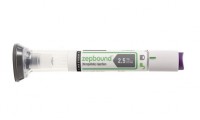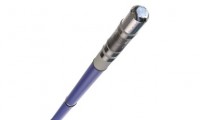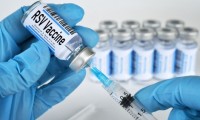-
Bayer Eyes Break-Up, Management Cuts on Disappointing Q3 Results
- Source: drugdu
- 120
- November 10, 2023
-
EU HTA harmonisation may land off key for pharma
- Source: drugdu
- 198
- November 10, 2023
-
Alfasigma opens new doors in the US with Intercept acquisition
- Source: drugdu
- 116
- November 10, 2023
-
With FDA approval, Eli Lilly’s weight-loss drug Zepbound arrives to challenge Novo Nordisk
- Source: drugdu
- 100
- November 10, 2023
-
Janssen Sends Data for Phase III Children’s Pulmonary Tuberculosis Treatment to FDA and EMA
- Source: drugdu
- 131
- November 10, 2023
-
FDA Approves Eli Lilly Weight Drug, Now Set to Compete Against Novo’s Wegovy
- Source: drugdu
- 101
- November 10, 2023
-
HHS Considers Removing J&J’s Stelara from Medicare Drug Price Negotiations
- Source: drugdu
- 110
- November 9, 2023
-
J&J links radiofrequency catheter to improved quality of life in atrial fibrillation study
- Source: drugdu
- 94
- November 9, 2023
-
Novel and emerging therapies offer new hope for patients with inflammatory bowel disease
- Source: drugdu
- 89
- November 9, 2023
-
Sanofi Issues Update on Shortages of Beyfortus for Respiratory Syncytial Virus
- Source: drugdu
- 92
- November 9, 2023
your submission has already been received.
OK
Subscribe
Please enter a valid Email address!
Submit
The most relevant industry news & insight will be sent to you every two weeks.













